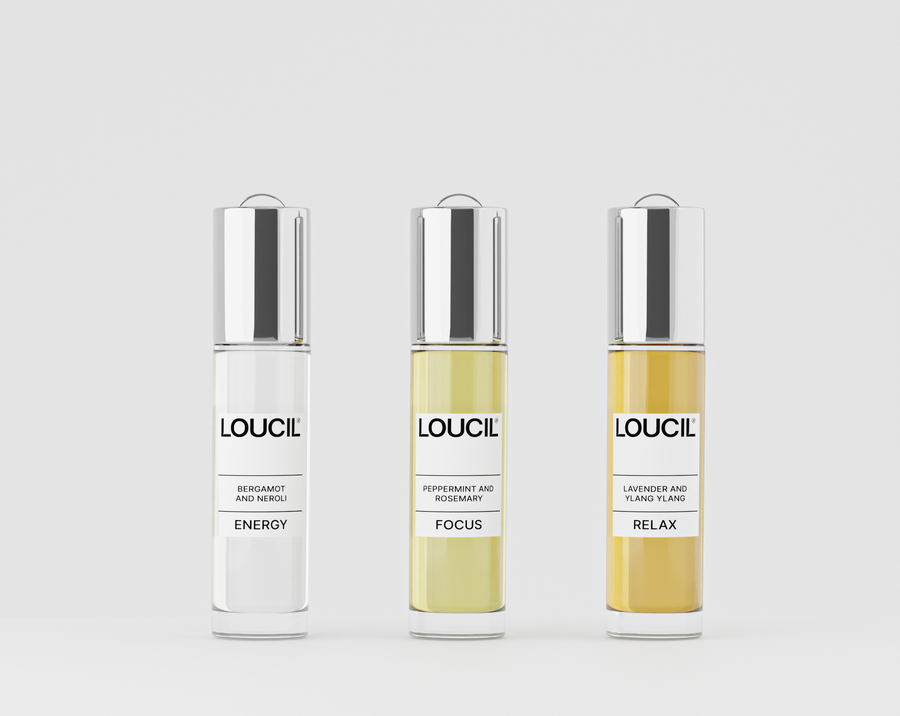Fragrance today is often treated as an accessory. We spray or roll it on because it smells good, or because we want others to enjoy it. For about 75% of EU consumers, pleasing others is the main reason behind fragrance purchases. But there’s more to scent than aesthetics. Smell is not just decoration, it’s a sensory pathway with direct access to the emotional and physiological centers of the brain. It can alter mood, sharpen focus, reduce stress, and unlock memory in a way no other sense can. In other words: scent is the most elegant pill.
A Whiff of Emotion: From Bakeries to the Alps
Picture yourself walking down a city street. Suddenly, the warm notes of vanilla and roasted pastry drift from a nearby bakery. Instantly, your shoulders drop, your stomach rumbles, and a smile sneaks onto your face.
Now change the scene: you’re in the mountains, and the unmistakable smell of cow dung drifts through the air. Instead of disgust, you might feel a wave of nostalgia: alpine landscapes, mountain hikes, fresh air. It sounds funny, but these moments show the same truth: smell bypasses logic and connects straight to emotion.

How the Brain Reacts to Scent
The Amygdala – Instant Tagging
The amygdala, your brain’s emotional sentinel, is the first to respond. It tags the scent: pleasant and soothing or threatening and disgusting. Some reactions are innate, like smoke signalling danger. Others are learned, such as vanilla feeling cozy.
The Hippocampus – Memory Connection
Then the hippocampus gets involved. This is your brain’s memory library. If lavender was part of your childhood bedtime ritual, those memories resurface and strengthen the calming effect. This is the “Proust effect”, where a scent instantly transports you to a vivid emotional memory.
The Hypothalamus – Body Chemistry
Finally, the hypothalamus translates emotions into body chemistry. Safe smells tilt the body into parasympathetic mode: lowering heart rate, easing breathing, and reducing cortisol. Threatening smells do the opposite, triggering adrenaline. This direct pathway explains why aromatherapy can measurably affect stress, focus, and energy.
Functional Fragrances: Beyond Personal Memory
We all have personal scent associations, your childhood vanilla might be someone else’s Swiss cow field. But science shows that some natural extracts work more universally, especially across Western society. They don’t just smell nice, they have a measurable effect on mood.
-
Lavender → helps you relax and eases anxiety
-
Peppermint → boosts focus and alertness
-
Mandarin citrus → lifts your mood and energy
These effects have been tested and validated in scientific studies. That means they go beyond individual memories, they can actively support how we feel on a daily basis.
Pure essential oils can deliver these effects, but often feel flat or too raw. That’s where Loucíl’s technology comes in: we take these proven mood-enhancing extracts and blend them into refined perfumes. The result keeps the functional power, but adds the richness and elegance of fine fragrance.
Scent: The Elegant Shortcut to Wellbeing
Scent is not just about smelling good. It’s a direct bridge between your nose, your emotions, and your physiology. It is, quite simply, the most elegant pill nature ever created.
Of course, the pill is not literal, it’s a way of expressing how powerful scent can be. Unlike a tablet or supplement, fragrance is non-invasive. It doesn’t need to be swallowed or injected. Instead, its effects are wrapped in elegance: a simple breath, a gentle trail of perfume, and your body and mind respond.
At Loucíl, we combine the proven functionality of active extracts with the sophistication of luxury perfume. The result is a fragrance designed to make you feel good and smell good in one effortless gesture.
Step up. Smell differently. Become an advocate of scent.




